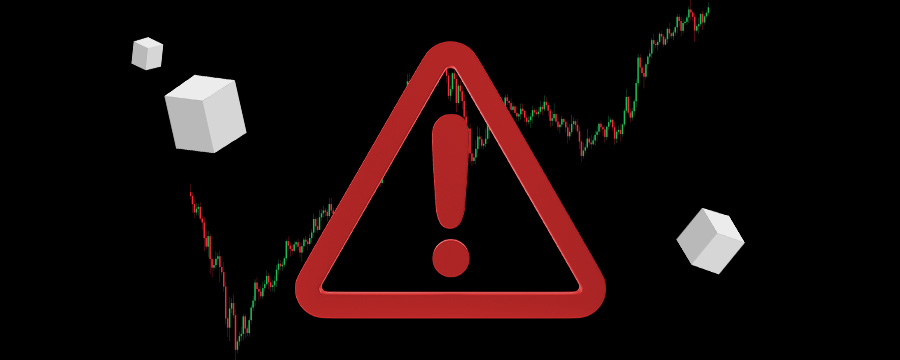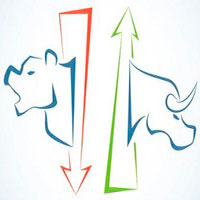The foreign exchange market draws a lot of new traders' attention due to its low entry requirements and extremely high liquidity (on average, more than $7.5 trillion is traded daily). This is particularly true given that this market is available 24 hours a day, 7 days a week, offering beginners more flexibility in their trading schedules. Initial capital requirements are also appealing because you may get started with a low initial capital because most brokers provide high leverage.
However, this experience frequently proves to be more challenging than anticipated. Because of its complexity, the forex market is also a market where traders who enter too quickly risk making significant mistakes. Even if you can't prevent making some trading mistakes, it's important to avoid doing so often and to take lessons from both winning and failing deals. Let's look at a few of the most important mistakes that new FX traders make.
Not developing a trading plan
If you want to trade forex, you will need a solid trading plan in place. Not having one will potentially result in losses, so make sure you take your time and make a list of guidelines to direct your trading and money management methods before you get started. Consider the following questions:
- When should I place my first trade?
- What parameters, such as economic news or moving averages, would I use to assess a trade?
- What is my target profit?
- What currency pairs should I focus on?
- When should I close my trade?
- Where should I place my stop-loss orders?
- How much capital should I risk?

The majority of traders fail to adhere to their trading strategy, if they even have one, since they are so busy attempting to take advantage of the trading opportunities that the markets present. How a skilled trader approaches their everyday trading is what sets them apart from a newbie.
More experienced traders will adhere to a trading strategy and a routine that they have worked long and hard to establish, as opposed to first-time traders who typically go from trade to trade without a plan and trade according to their mood.
Not enough market research
Some traders will base their decision to enter or quit a position on advice or their emotions. This could provide results, but it's important to back up these feelings or clues with data and market research before choosing to purchase or sell a position. You must have a firm comprehension of the market you are entering before opening a position. What type of market is it? Is that market still extremely erratic, or is it becoming more steady? Before taking a position on some of these issues, conduct your research.
Politics, market fundamentals, and their interaction present traders with both opportunities and threats.
Many novice traders are drawn by the potential gains, but they forego doing the necessary investigation. Financial loss might arise from this. On the other hand, successful traders often read a lot and regularly to keep up with potential market-moving events and to educate themselves on trading strategies.
Depending too much on software
Trading platforms like MetaTrader 4 enable complete automation and customisation to meet individual demands, and certain trading programs may be quite useful for traders. However, it's important to understand both the advantages and disadvantages of each before beginning to use software-based solutions to open or close a position.
The key benefit of algorithmic trading is that transactions may be finished a lot quicker than they would be using human techniques. Automated trading algorithms are becoming so advanced that they might alter how people interact with markets in the next decades.
However, algorithm-based systems lack this advantage since their responsiveness is constrained by the programming they have received, which reduces their efficacy. These strategies have historically been held responsible for market flash crashes since shares and other assets are swiftly liquidated in a market that is briefly declining.
Trading without financial backing and risk management guidelines
A stop-loss order, which instructs your broker to cancel your position once it experiences a specified degree of loss, is frequently overlooked by beginner forex traders. If you don't employ stop-loss orders, you are taking an open-ended risk since your holdings can change at any time in response to changes in the market's price. As a result, there is a higher chance of magnified losses if things don't go your way because you aren't limiting your losing positions, leaving you open to significant swings in the other direction.
Disregarding news and economic data
Currency markets may be significantly impacted by news events like the publication of economic data and central bank decisions. The good news is that many of these occasions have a predictable calendar, making it simple to anticipate when they will occur. Naturally, this does not imply that it is simple to foretell what the news will be or how the markets will respond.
Using a lot of leverage
The most expensive mistake that novice traders make is probably not understanding and overusing leverage. You may trade with more money than is in your trading account with the use of leverage and margin trading, which gives you additional market exposure. But this only works in your favour if you have a consistent winning strategy and optimistic expectations.
When you don't have a successful plan, leverage increases the potential of making mistakes and losses since it may quickly increase both your earnings and losses.
Emotions interfering with judgment
When trading forex, it is not a good idea to trade based on emotion. Emotions have the potential to skew judgment and lead traders to stray from their plan. Examples include happiness after a successful day or dejection after a fruitless day. Traders may begin taking positions without any supporting analysis when they have suffered a loss or are not generating as much money as they had anticipated.
It is unlikely that this would induce the markets to move in a more favorable direction. Instead, traders may unnecessarily repeat a continued loss in the hope that it will eventually increase.
Therefore, it is essential to keep your judgment impartial while trading. Your decisions to enter or exit a trade should be based on both technical and fundamental factors.

















